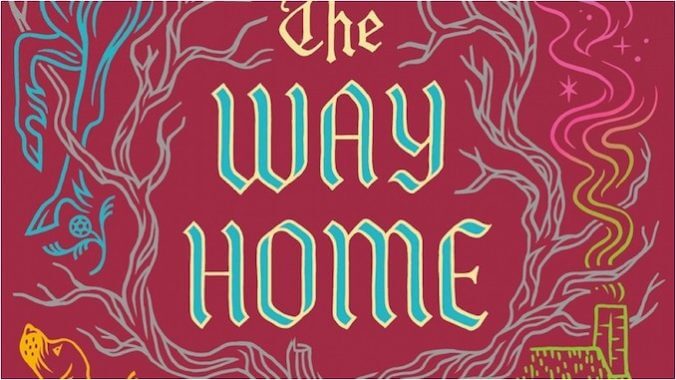Peter Beagle’s The Way Home Is a Reminder That He’s Always Been One of Fantasy’s Greats

Sometimes impossible things just happen, and we call them miracles. That quote may come from the iconic science fiction series Doctor Who, but it’s applicable in a truly surprising amount of situations in the real world. And for readers (like me), who’ve been fans of iconic fantasy author Peter Beagle for the better part of our lifetimes, the idea that he might one day return to the world of his beloved classic The Last Unicorn seemed like the sweetest sort of pipe dream. Except it’s true. An impossible thing has happened, and it is, in fact, a miracle.
The Last Unicorn, for those who don’t know, or who are perhaps only familiar with the excellent animated film from 1982, is a novel that’s full of striking imagery and complex thematic contradictions. In simplest terms, it is the story of a unicorn who learns she is the last of her kind and sets off on a journey to find out what happened to her missing sisters. It is, of course, ultimately much more than that. A fairytale that doesn’t necessarily believe in the saccharine platitudes that so often permeate its genre or the happily ever afters that imply our stories ever have something as definitive as a stopping point, it is a strange, jagged, oftentimes uncomfortable tale that is perfect in all its delicate strangeness. (Not to mention beautifully written.)
The Way Home takes us back to the unicorn’s world by way of a pair of novellas which both deal with similar characters and themes. The first, “Two Hearts,” was originally published in 2005, and won both the Hugo and the Nebula Awards in 2007. It was released over thirty-five years after the original and serves as something of a coda to Beagle’s novel. (It was ultimately included in Beagle’s collection of short stories called The Line Between, as well as a deluxe edition of The Last Unicorn a few years later. Don’t judge me for how many copies of this I have, ok?? The second story, titled “Sooz,” has never before been published, and returns to the story of its eponymous lead character, who first appeared in “Two Hearts”.
Like much of Beagle’s work, these two stories touch on themes he’s always seemed to find fascinating as an author: The inevitability of death, the sweetly sharp sting of regret, the way that evil doesn’t always look the way we expect, that love is a gift, no what form it may come in. That nothing lasts forever, but that nothing is ever truly gone, either. That happy endings cannot come in the middle of your story.
-

-

-

-

-

-

-

-

-

-

-

-

-

-

-

-

-

-

-

-

-

-

-

-

-

-

-

-

-

-

-

-

-

-

-

-

-

-

-

-








































